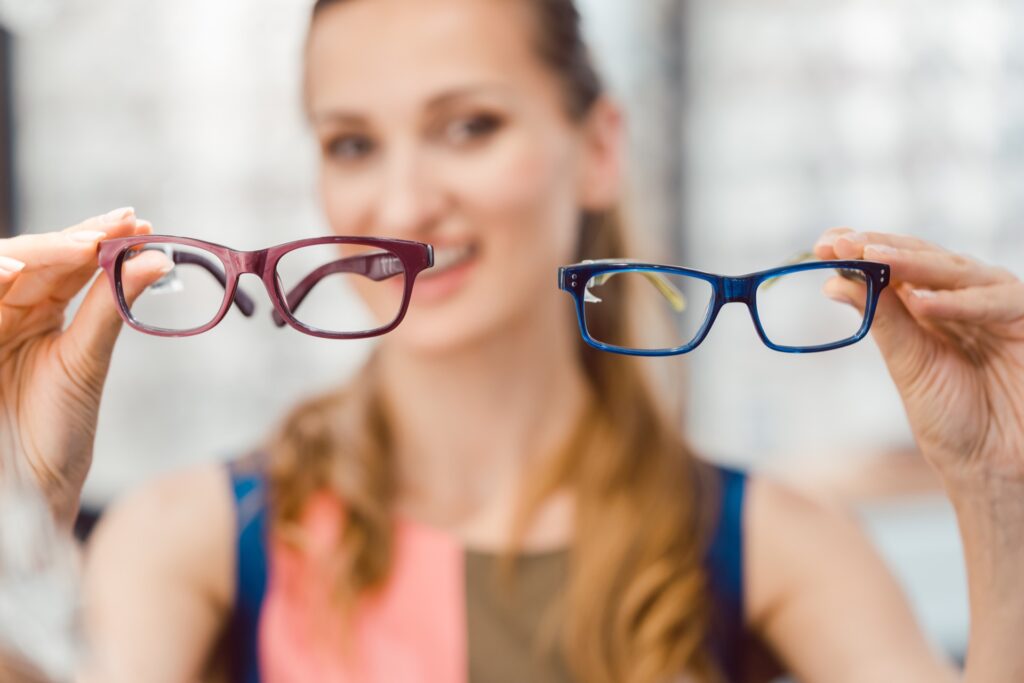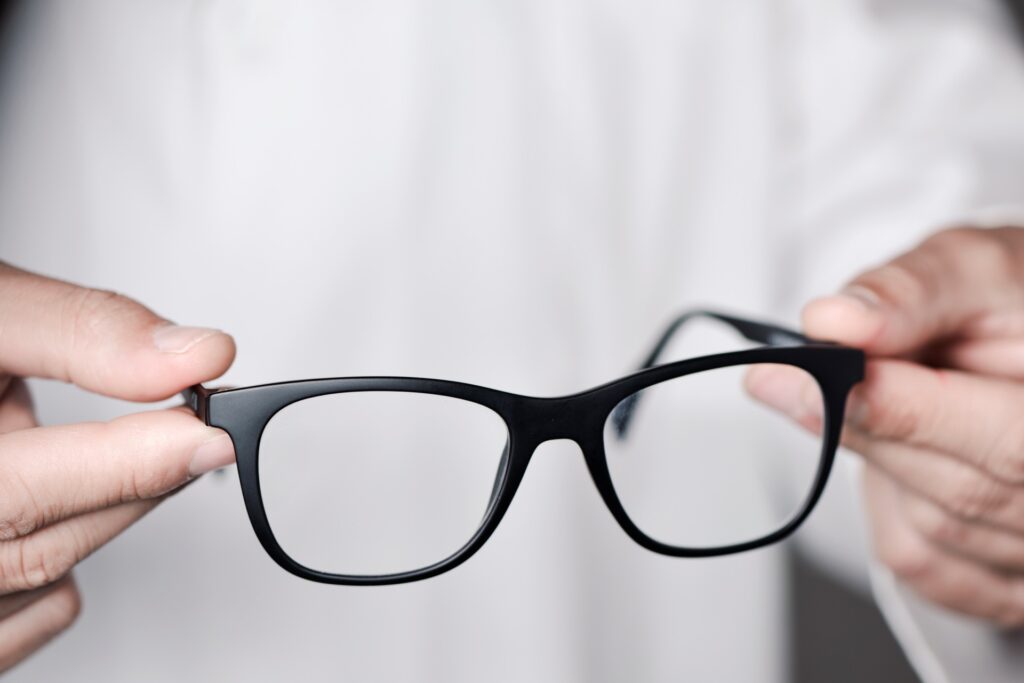Most glasses are designed to fix one aspect of your vision through a single lens, but while this can work for some people, it can also be annoying to manage for those that need multiple prescriptions. In turn, that can make it challenging to prepare for the day. It can also make it frustrating to carry several pairs of glasses around. This is where progressive lenses (also known as multifocal lenses because of their ability to focus detail at multiple distances) can help and understanding the pros and cons of progressive lenses can help you make your decision on whether to choose them.
Below, we detail progressive lenses’ pros and cons and whether or not they might be right for you.
Progressive Lenses Pros and Cons: The Pros
One of the main pros of progressive lenses is their design: they are essentially 3 pairs of glasses in one. They allow you to see clearly close-up (like when reading the tiny print on an instruction manual), at a moderate distance (like when browsing websites on your computer), and at a far-away distance (like when driving on the highway).
Another benefit is that there is a natural transition with progressive lenses as opposed to bifocals. You don’t get a “jump” effect in your vision with them, unlike bifocals which can have harsh transitions.
Progressive Lenses Pros and Cons: The Cons
While that “jump” effect may be gone, progressive lenses do take some time to get used to as there is a learning curve to them. It can take up to several weeks before your eyes adjust to using them. During this time, you may experience eye strain or headaches while your eyes adjust, but those will go away with time and the continued use of your new lenses.
Note that not all progressive lenses are the same, and you should consult with your Kelowna optometrist to find the best pair that will suit your lifestyle and vision needs.
How to Choose Progressive Lenses
Like other kinds of lenses, there are a wide range of designs and styles available so it’s up to you to find ones that are most comfortable and support your vision effectively. While some lens designs are more affordable than others, the higher up the scale you go the better the quality of your vision is improved.
Overall, if you’re not sure if getting progressive lenses is the right decision for you, it’s best to book an appointment with your Kelowna optometrist. They’ll be able to break down the benefits and drawbacks of any options for correcting your vision.


